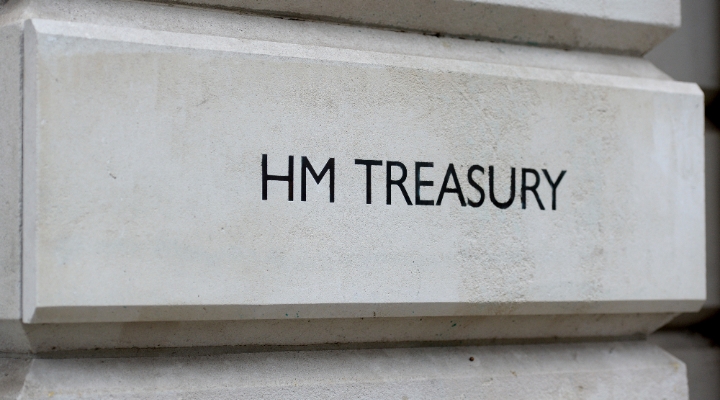
Attracted by higher yields, UK income investors have started to embrace buying bonds directly. As part of our special week of content on income investing, we've produced this guide to help answer investors' frequently-asked questions as they make their first steps.
Many UK investment platforms have started to offer direct access to government bonds – alongside their corporate bond offerings. With government bonds, these are being traded in the "secondary market", so they are bonds already issued. To buy bonds at issue (in the primary market), it's still possible to buy at the UK government auction run by the Debt Management Office (DMO).
Let's look at two random bonds for sale on an investment platform: "Treasury 4.75% 07/12/2030"; and "Treasury 0.125% 30/01/2026." The label describes the issuer (HM Treasury, AKA the UK government), the coupon as a percentage, and the maturity date, which shows when the bond will pay back the capital, a key feature of bonds.
What's The Difference Between Coupon and Yield?
By way of theoretical example, in the case of "Treasury 4.75% 07/12/2030," investing at the start of the bond would lock in a payout of £4.75 for each nominal £100 invested (we have used the £100 figure as a round number for simplicity – but if you want to buy bonds in batches of £100 your fund supermarket should allow you to do this!). That's why it's called "fixed" income. Buying this 10-year bond at the start secures that 4.75% for the life of the bond (assuming the UK government doesn't default on its payments).
But a bond's yield may vary throughout the term of the bond itself, depending on the price. Yield is the rate of return on the coupon payments, and is normally calculated by dividing the headline coupon payment by the bond's current market price. Nevertheless, buying this bond, even with six-and-a-half years to maturity, will still provide a payout of £4.75 every year even if the yield is above or below that.
What About Total Return?
Income is a factor in bond returns and these depend on when the bond was purchased and at what price. Read more in our article Want to Buy UK Government Bonds? Be Careful.
When Do Bonds Pay Out?
The convention for bonds is for semi-annual payments; so a £10 coupon will be split into two equal parts in the middle and end of the year. Depending on when the bond is bought, an investor might miss out on a full bi-annual payment and only receive a partial payment. The previous owner is entitled to a portion too!
What About Corporate Bonds?
Buying the debt of a company is very different from buying government bonds from sovereign nations. But both receive credit ratings from agencies. Companies are more likely to default than a government, so their bonds have higher yields. This can tempt investors looking for higher-risk investments.
What Determines a Corporate Bond's Yield?
A company like Shell is likely to have a better credit rating than a small, heavily-indebted corporation. The distinction here is between investment grade or junk/high-yield bonds issued by companies. This is known as the credit spread or yield spread.
The better the credit rating, the lower the borrowing costs for the company or government. While the risk of default is lower for an investor (which improves your chances of getting paid), the yield is lower because the debt is less risky.
In times of recession or market stress, more vulnerable companies tend to have higher yields. But they are also more likely to default. And the same goes for governments: in 2012 Greek debt had an enormous yield but the country defaulted before an International Monetary Fund rescue package could take the edge off the pain.
What About Bond Prices?
A bond's yield moves inversely to price. So high demand for certain types of bonds will push up the price but push down the yield. Media outlets often talk of "bond rallies", which means prices are rising and yields are falling. Whether bond prices rise or fall, the coupon stays the same, but the yield adjusts. Interest rates, inflation expectations, economic growth and demand for bonds themselves all have an impact on prices.
Are There Any Bonds That Don't Pay Regular Income?
"Zero-coupon" bonds do not pay incremental interest payments in the way traditional bonds do, but you'll still find them issued by governments and corporations. Because investors only get paid once their bond reaches maturity, zero-coupon bonds trade at deep discounts.
I Want a Monthly Income, Are Bonds Suitable?
Six-monthly coupon payments may not suit an investor wanting monthly income. But there are plenty of other ways to receive bond income more regularly than every six months.
Many ETFs, funds and investment trusts are available and tailored to those who need a more regular income, be it from bonds or stocks. Many savings accounts also offer a range of payment timetables.
Are Bonds Just for Income?
No. They perform a variety of functions in a portfolio. They can be bought to lower volatility, add diversification, match specific commitments to time horizons, and, crucially, for capital security. The predictability of bond income payments and maturity dates often suits pension funds, for example, whose payments to pensioners come at specific times.
Long-term government bonds help pension funds make payments because they know they will get predictable income and will get their money back at the end of the holding period.
Buying stocks for income is more perilous; companies can cut or axe their dividends or even go bust. And don't forget: bondholders take priority over shareholders when an insolvent company's remaining assets are liquidated for compensation.
What Happens to UK Bonds Next?
At the moment, UK government bond yields suggest rates will not fall dramatically as inflation hangs around. But financial market assumptions are changing all the time.
Jupiter fixed income manager Ariel Bezalel explained this well at the Morningstar Investment Conference: with bonds you have to factor in a range of scenarios this year and these will affect your returns. UK government bonds with 4% yields may look attractive now, especially if interest rates start to fall this year, but, as above, yield isn't the only factor at play. As ever, seek regulated financial advice if you're stuck!




























